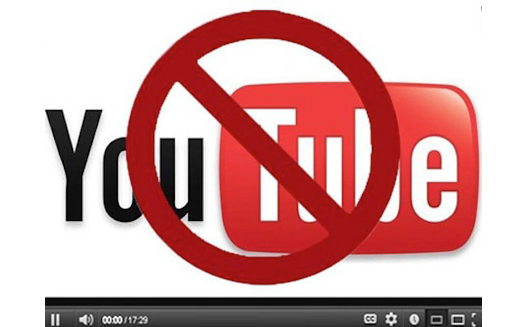Who Egypt’s YouTube Ban Will Hurt the Most

 On the anniversary of the day Mubarak stepped
down two years ago, Egypt is still facing a pending 30-day ban on
YouTube, ordered by Egypt’s administrative court as a “temporary
punishment” for not removing an anti-Islamic film released last
year.
On the anniversary of the day Mubarak stepped
down two years ago, Egypt is still facing a pending 30-day ban on
YouTube, ordered by Egypt’s administrative court as a “temporary
punishment” for not removing an anti-Islamic film released last
year.
The film, titled the “Innocence of Muslims,” inflamed violent riots
across the Middle East last year due to its depiction of the
Prophet, which court Judge Hassouna Tawfiq has now termed
“offensive to Islam.”
As of today, the YouTube ban, which could be extended to Facebook,
Twitter, and any site on which the video was shared, has still not
been enforced. On Saturday, a spokeswoman for Google
reported that the YouTube parent company had “received nothing
from the judge or government related to this matter.”
Enforcement could be difficult; a similar
ban on pornography issued in March of last year, following a
previous ban
in 2009, has not yet been enforced, perhaps due to the
high cost of implementation.
Currently, over 44% of Egypt's almost 30
million internet users (35% of the population) watch YouTube on
a daily basis, according to Google.
Effect on Egypt's Startup Community
If set into motion, the ban could devastate the Egyptian startup
community, which widely depends upon video to market products and
deliver content.
Egyptian video magazine startup Disalata, for one, rose to fame this year after releasing “Egyptian Style,” a localized “Gangnam Style” parody, on YouTube. Crowdsway, a graduate of Cairo accelerator Flat6Labs, works to connect independent filmmakers with jobs and distribution channels for their work, which, for now, can be seen on YouTube.
Kharabeesh, the region’s
largest multichannel network in the Arab world, with over 21
million YouTube views per month, rose in popularity during the Arab
Spring partly thanks to a satirical cartoon titled “Mubarak
is High.” The network now has an office in Egypt and
distributes comedy shows, music channels, talk shows, animations,
and workshop content to educate media entrepreneurs.
The company’s co-founder, Wael Attili recently
commented on a censorship law in Jordan, saying "big internet
corporations are having concerns about this law, and we cannot
ignore the fact that these corporations are the base of our ICT
culture."
The same logic applies in Egypt, where Ahmad Alfi, the Chairman of
Flat6Labs and venture capital firm Sawari Ventures, says a YouTube
ban would “deprive the general public of educational opportunities,
deprive startups of the ability to communicate their message to the
public and potential investors, reduce the resources available to
startups to learn and solve problems, and eliminate the ability of
media to release a product.”
Samer El Sahn, the CEO of Alexandria-based accelerator Tahrir2, agrees that the effect of a ban would reach far beyond cutting traffic on digital media channels when it comes to dampening startup momentum. “Many startups use YouTube as a marketing channel. There are alternatives, but YouTube remains the king.”
“A blanket ban will also affect how investors look at the
region,” he adds.
Generally, human rights activists have interpreted the ruling as a
reflection of the courts’
lack of understanding about
how the internet works. "The judges do not realize that one
wrong post on a website does not mean you have to block the entire
website," leading human rights lawyer Gamal Eid tweeted yesterday.
Yet despite myriad tools for circumventing the ban, popular
YouTube channels would likely still take a large hit thanks to a
drop in casual users who don’t take steps to bypass a block.
Who Stands to Lose
Here’s a look at the top five fastest growing YouTube channels in
Egypt, according to SocialBakers:
 Al
Bernameg (65795871 views)
Al
Bernameg (65795871 views)
Bassem Youssef’s satirical news show, which launched in the aftermath of the revolution, inspired by The Daily Show in the U.S., rose to millions of views by the end of its first season.
 Amr
Diab (6,638,6320 views)
Amr
Diab (6,638,6320 views)
The music video channel for the best-selling Arab recording artist of all time, known as the “Father of Mediterranean Music.”
- Tamer Hosny (104722245
views)

The music video channel of Egypt’s King of Pop, who staged a controversial concert in Tahrir Square following protests.
 KharabeeshCartoons
(58157157 views)
KharabeeshCartoons
(58157157 views)
Kharabeesh’s Cartoon channel, known for its satirical and comedic Arabic content, offers show mosly targeting an adult audience.
- A
 mr Khaled (38271111
views)
mr Khaled (38271111
views)
An activist Muslim preacher who has risen to popularity for his message of “Faith-based development,” which denounces extremism and encourages humility.
With a mix of satire, news, community-oriented messaging, and
entertainment leading Egyptian YouTube consumption, traditional
media stands to win, albeit only for a month, with a YouTube
ban.
Should the Telecom and ICT ministries in Egypt proceed to enact the
ban, thwarting investment in small businesses, which can critically
help create jobs and get the economy back on its feet, it would
seem counterproductive. And when has restriction in Egypt lately
led to silence and acceptance?
After all, says Attili, “When you institute a ban and then put
someone into jail [for breaking it], you make him into a hero.”


